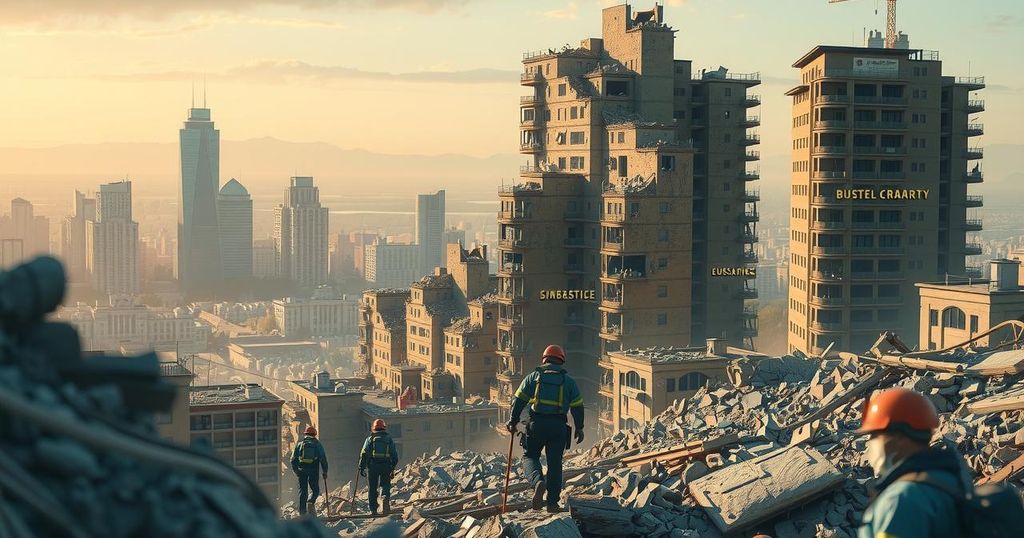Myanmar Earthquake: Death Toll Surpasses 3,000 Amid Survivor Rescues and Humanitarian Crisis

The recent earthquake in Myanmar has resulted in a death toll expected to exceed 3,000, with urgent humanitarian needs amid ongoing civil conflict. Rescues continue, bringing hope, but challenges remain with infrastructural damage and access to aid. International responses are crucial as the civilian population faces dire shortages of essential supplies.
A recent earthquake in Myanmar has resulted in an alarming death toll, projected to exceed 3,000, with over 2,000 confirmed dead. Rescues continue, including that of a 63-year-old woman, but the window for finding additional survivors is rapidly closing. The military junta’s leader, General Min Aung Hlaing, reported that 441 people are still missing, emphasizing the urgent humanitarian crisis exacerbated by ongoing civil war in the region.
The U.N. Office for the Coordination of Humanitarian Affairs (OCHA) has stressed that essential supplies such as shelter, clean water, and medicine are critically low. Families affected by the disaster are enduring severe shortages, as highlighted by UNICEF’s deputy representative, who called the situation dire. The recent quake damaged or collapsed over 10,000 buildings, further complicating recovery efforts in Myanmar and neighboring Thailand.
In Bangkok, the earthquake leveled a high-rise construction site, resulting in 20 fatalities and numerous injuries. Investigations are underway to determine the cause of the building collapse amid concerns about construction standards. In Myanmar, memorials for victims paused rescue efforts briefly, while reports of various rescues emerged, including that of individuals trapped for over 60 hours.
Search and rescue operations continue despite limited access to heavy machinery. International aid teams from several countries are arriving, albeit slowly. China’s rescuers managed to save four individuals from the rubble of a collapsed apartment complex, demonstrating that while many remain trapped, hope for survival persists. Numerous nations are pledging significant financial aid to respond to the crisis.
Water shortages and the risk of cholera are growing concerns, as many regions were already lacking basic healthcare pre-earthquake. The humanitarian situation is worsened by ongoing civil unrest, with millions previously displaced by conflict. The opposition National Unity Government has called for a ceasefire to facilitate humanitarian efforts, expressing urgency in delivering aid without military obstructions.
Tom Andrews of the U.N.-backed Human Rights Council emphasized that aid must take precedence over military actions. The military junta has indicated a willingness to accept foreign assistance, a shift from past refusals. Yet, the ongoing conflict poses a significant challenge to humanitarian access and relief efforts in the affected areas.
The earthquake in Myanmar has led to a catastrophic humanitarian crisis, with rising death tolls and immense infrastructural damage. Amidst the devastation, notable rescues offer glimmers of hope, though urgent international aid and the cessation of military actions are critical for effective disaster response. The prolonged civil war complicates recovery, highlighting the need for coordinated humanitarian efforts to ensure aid reaches those most in need while navigating the complexities of military involvement.
Original Source: www.cbsnews.com






